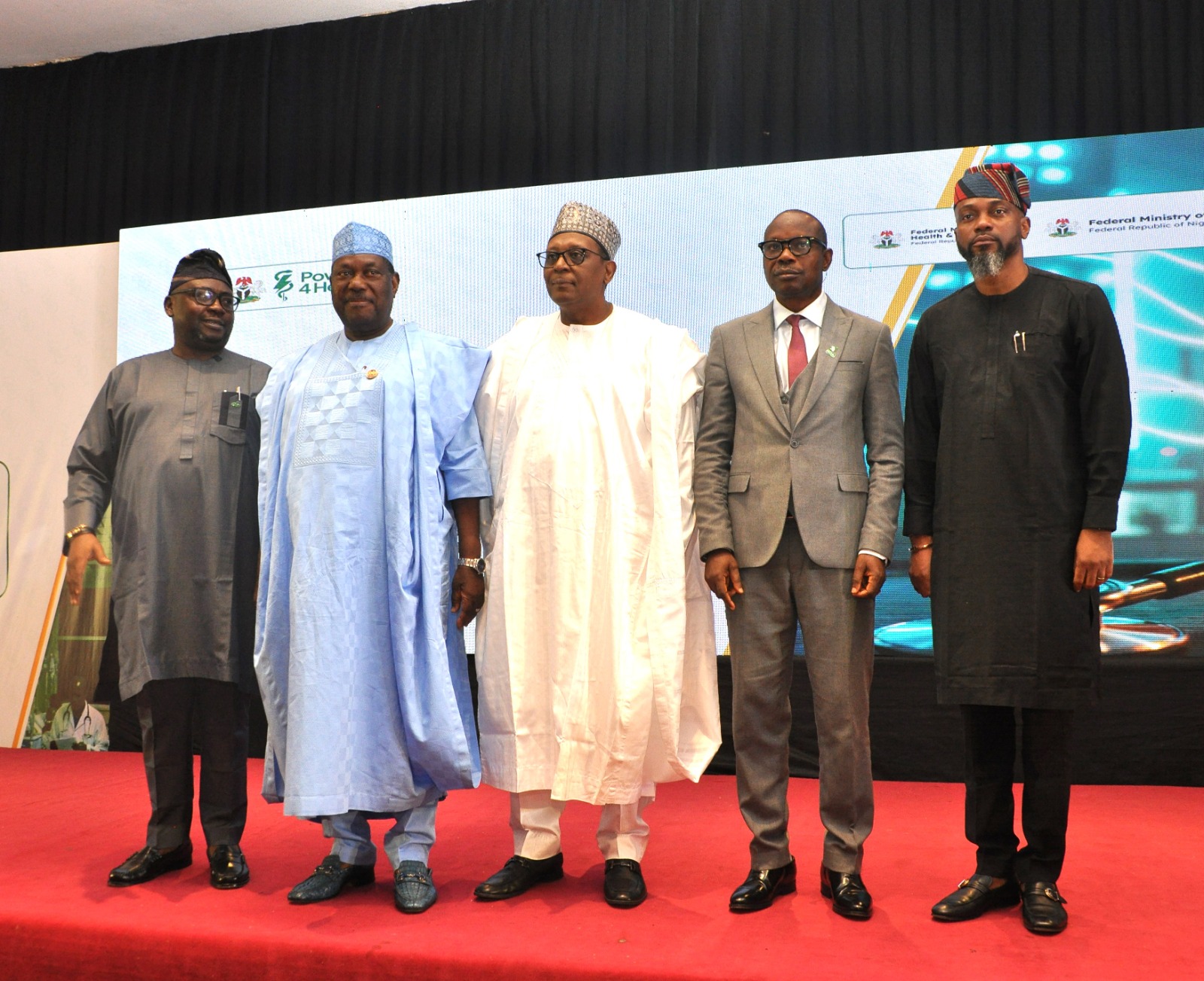In a dramatic display of frustration, employees of Nigeria’s Federal Ministry of Women Affairs took to the streets of Abuja on Wednesday, September 10, 2025, to protest what they described as gross neglect of their welfare by the supervising Minister, Imaan Sulaiman-Ibrahim. The demonstration, which unfolded in front of the ministry’s headquarters, underscored deep-seated grievances among the staff, who accused the minister of failing to address critical issues affecting their working conditions and overall well-being. The protest, marked by placards and chants, highlighted the workers’ demands for better tools, improved welfare packages, and a more responsive leadership.
Background: The Role of the Ministry of Women Affairs
The Federal Ministry of Women Affairs is a pivotal institution in Nigeria’s governance structure, tasked with promoting gender equality, empowering women, and protecting the rights of women and children across the country. Established to address systemic gender disparities, the ministry oversees policies and programs aimed at improving the socio-economic status of women, combating gender-based violence, and ensuring the welfare of vulnerable populations, particularly women and children. Its mandate includes coordinating with state governments, non-governmental organizations, and international partners to implement initiatives that uplift women’s status in Nigerian society.
With such a critical role, the ministry’s workforce is expected to operate under conducive conditions to effectively execute its responsibilities. However, the recent protest by staff members suggests a troubling disconnect between the ministry’s leadership and its employees, raising questions about the internal management of an institution meant to champion fairness and equity.
The Protest: A Cry for Attention
On the morning of September 10, 2025, dozens of ministry staff gathered outside the ministry’s headquarters in Abuja, the nation’s capital, to voice their grievances. The protesters, comprising both junior and senior employees, carried placards with inscriptions such as “We don’t have working tools,” “Minister, address our welfare,” and “No tools, no progress.” Their chants echoed through the vicinity, drawing the attention of passersby and media outlets, who documented the unfolding events.
The protesters accused Minister Imaan Sulaiman-Ibrahim of neglecting their welfare, citing a lack of essential tools and resources needed to perform their duties effectively. According to the staff, outdated equipment, inadequate office supplies, and poor working conditions have hampered their productivity, making it difficult to deliver on the ministry’s mandate. One protester, who spoke anonymously to avoid victimization, stated, “We are expected to champion women’s rights and empowerment, but how can we do that when we don’t even have functional computers or basic office supplies? Our welfare is completely ignored, and the minister seems unconcerned.”
The demonstration was not only a call for better tools but also a broader demand for improved welfare packages, including timely payment of allowances, access to training opportunities, and a safer, more supportive work environment. The staff expressed frustration over what they described as a lack of engagement from the minister, accusing her of being detached from the day-to-day challenges faced by employees.
Minister Imaan Sulaiman-Ibrahim: A Controversial Tenure
Imaan Sulaiman-Ibrahim, appointed as the Minister of Women Affairs, has been at the helm of the ministry for a period marked by both achievements and controversies. A seasoned administrator with a background in public policy and security, Sulaiman-Ibrahim was expected to bring innovative leadership to the ministry. Her tenure has seen initiatives aimed at addressing gender-based violence and promoting women’s economic empowerment, including partnerships with international organizations to fund programs for women in rural areas.
However, the recent protest suggests that her leadership style may not resonate with the ministry’s workforce. Critics among the staff argue that while the minister has focused on high-profile projects, she has paid insufficient attention to the internal workings of the ministry, particularly the needs of its employees. The lack of adequate tools, for instance, is seen as a symptom of broader mismanagement, with funds allegedly prioritized for external programs rather than internal capacity building.
The minister’s office has yet to issue an official response to the protest, but sources within the ministry suggest that the leadership is aware of the grievances and is working to address them. However, the absence of immediate communication with the protesting staff has further fueled their discontent, with many feeling that their concerns are being dismissed.
The Broader Context: Challenges in Nigeria’s Public Sector
The protest at the Ministry of Women Affairs is not an isolated incident but rather a reflection of broader challenges within Nigeria’s public sector. Civil servants across various ministries and agencies have long complained about poor working conditions, delayed salaries, and inadequate resources. In recent years, protests and strikes by public sector workers have become more frequent, as employees demand better treatment and accountability from their leaders.
The issue of inadequate tools, as highlighted by the Women Affairs staff, is particularly significant in a country striving to modernize its public service delivery. Nigeria’s government has made commitments to digitalize its operations and improve efficiency, but the reality on the ground often falls short. Outdated computers, unreliable internet access, and insufficient funding for basic office supplies are common complaints across ministries, undermining the government’s ability to deliver on its promises.
Moreover, the welfare of public servants is a critical factor in ensuring effective governance. Low morale among employees can lead to reduced productivity, poor service delivery, and a lack of trust in government institutions. For a ministry like Women Affairs, which deals with sensitive issues such as gender-based violence and child welfare, the stakes are even higher. Employees need to be adequately equipped and motivated to handle the complex and emotionally taxing nature of their work.
Voices from the Protest
During the protest, several staff members spoke to journalists, shedding light on the specific issues fueling their discontent. One employee, a mid-level officer who identified herself as Aisha, explained, “We are passionate about our work, but we are frustrated. The minister talks about empowering women, but what about empowering us, the staff who make it happen? We don’t have printers, our computers are old, and sometimes we have to use our personal funds to buy stationery. It’s unacceptable.”
Another protester, a senior official who requested anonymity, highlighted the lack of training opportunities. “The world is moving forward, but we are stuck with outdated skills because there’s no investment in our professional development. How can we compete globally or deliver quality service when we’re not given the tools or training we need?” he asked.
The protesters also expressed disappointment in the minister’s leadership style, describing her as inaccessible and unresponsive. “We’ve tried to raise these issues through official channels, but nothing changes. That’s why we’re out here today,” said one of the protest organizers. The decision to take their grievances public was a last resort, they claimed, after months of unanswered complaints and unfulfilled promises.
Implications for the Ministry and Beyond
The protest at the Ministry of Women Affairs has significant implications, not only for the ministry itself but also for the broader Nigerian government. For one, it raises questions about the effectiveness of leadership within the ministry and whether the current administration is equipped to address the needs of its workforce. If left unresolved, the grievances could escalate, potentially leading to further disruptions in the ministry’s operations.
Furthermore, the protest highlights the need for systemic reforms in Nigeria’s public sector. Issues such as inadequate funding, poor infrastructure, and lack of accountability are not unique to the Ministry of Women Affairs but are pervasive across government institutions. Addressing these challenges requires a comprehensive approach, including increased budgetary allocations for public sector welfare, investment in modern equipment, and policies to ensure transparency and accountability in resource management.
For the Ministry of Women Affairs, the protest is a wake-up call to prioritize the well-being of its staff. A demotivated workforce cannot effectively champion the cause of women’s empowerment, and the ministry risks losing credibility if it fails to address the concerns raised by its employees. The minister’s response in the coming days will be critical in determining whether the situation can be de-escalated and trust restored.
The Way Forward: Addressing the Grievances
To resolve the current crisis, the Ministry of Women Affairs must take immediate steps to address the concerns raised by its staff. First, the minister should engage directly with the employees, either through a town hall meeting or a formal dialogue with representatives of the protesting group. Open communication is essential to rebuilding trust and demonstrating a commitment to resolving the issues.
Second, the ministry should conduct a comprehensive assessment of its resource needs, particularly regarding tools and equipment. Investing in modern technology, such as updated computers, reliable internet access, and sufficient office supplies, would go a long way in improving productivity and morale. Additionally, the ministry should prioritize staff training and professional development to ensure that employees are equipped with the skills needed to perform their duties effectively.
Third, the government must address the broader issue of welfare in the public sector. This includes ensuring timely payment of salaries and allowances, improving workplace safety, and creating opportunities for career growth. A motivated and well-equipped workforce is essential for achieving the government’s development goals, particularly in a ministry as critical as Women Affairs.
Finally, the minister and her team should work to improve internal communication and foster a culture of inclusivity. Employees need to feel heard and valued, and their contributions should be recognized as integral to the ministry’s success. By addressing these issues proactively, the ministry can not only resolve the current crisis but also set a precedent for better management practices across the public sector.
Conclusion
The protest by staff of the Federal Ministry of Women Affairs on September 10, 2025, is a stark reminder of the challenges facing Nigeria’s public sector. The workers’ demands for better tools, improved welfare, and responsive leadership highlight systemic issues that cannot be ignored. As the ministry tasked with promoting gender equality and women’s empowerment, it is ironic that its own employees feel neglected and undervalued. The resolution of this crisis will depend on the minister’s ability to listen, act decisively, and prioritize the needs of her workforce. For now, the eyes of the nation are on the Ministry of Women Affairs, waiting to see how it navigates this turbulent moment and whether it can emerge stronger, both as an institution and as a champion for women’s rights in Nigeria.








